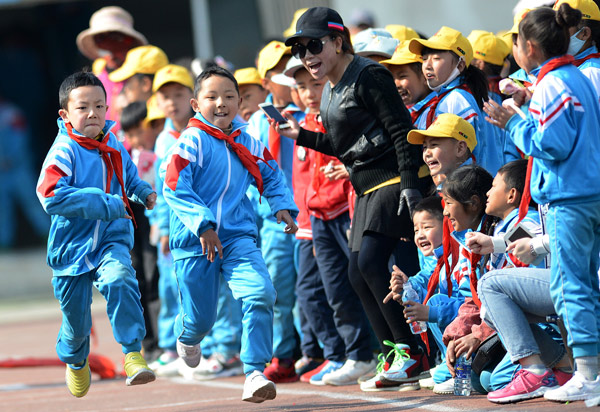 |
|
Students attend the spring athletic meeting on Friday at the Lhasa No 1 Primary School in Lhasa, the Tibet autonomous region. [Photo/Xinhua] |
Elite universities are to be established by the Ministry of Education in 14 central and western provinces that have never had a university directly under the ministry before, as part of the central government's pledge to bridge the widening education gap.
The 14 provinces include the Inner Mongolia autonomous region, the Xinjiang Uygur autonomous region and the Ningxia Hui autonomous region.
Chen Shun, assistant education minister, announced the decision at a news briefing on Friday.
There are only 79 universities that are directly administered by the ministry. In Beijing alone, there are 24, including Peking University, Tsinghua University and Renmin University.
Chu Zhaohui, a senior researcher at the National Institute of Education Sciences, said that establishing more universities in central and western areas under the ministry's administration means increased access to educational resources and opportunities.
The authorities are pressing ahead with a plan to ensure more students from poverty-stricken areas and those from ethnic groups have equal opportunities to enroll at prestigious universities.
In a document issued on Wednesday, the government promised to take more measures to improve education in less-developed central and western areas.
It aims to improve school facilities, education quality and to cultivate more talent to support local economic development, narrowing the gap with developed eastern areas by 2020.
Chen said these efforts will start in areas worst-hit by poverty, and attempt to ensure that every child has access to education.
In recent years, China has been striving to promote educational equality by giving more support to rural areas and ethnic groups. These efforts include projects being launched at prestigious universities to help students from rural areas to get enrolled, or for fees to be waived. However, it is still too early to say if the task has been completed.
"Problems and difficulties still exist, especially in border areas, ethnic group areas and poverty-stricken areas," Chen said.
Xiong Bingqi, vice-president of the 21st Century Education Research Institute, said these polices will help rural students to be enrolled at prestigious universities.
"However, there are still less than 10 percent of rural students enrolled at first-class universities.
"More students from rural areas can only be enrolled at mediocre universities. I suggest removing the different classes of university and to continue investing in public ones."
